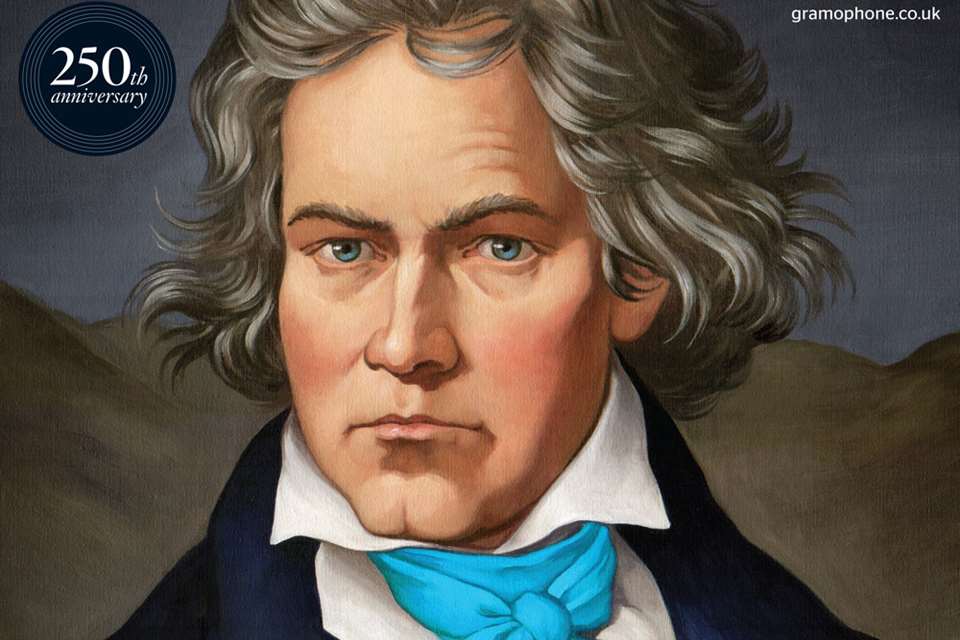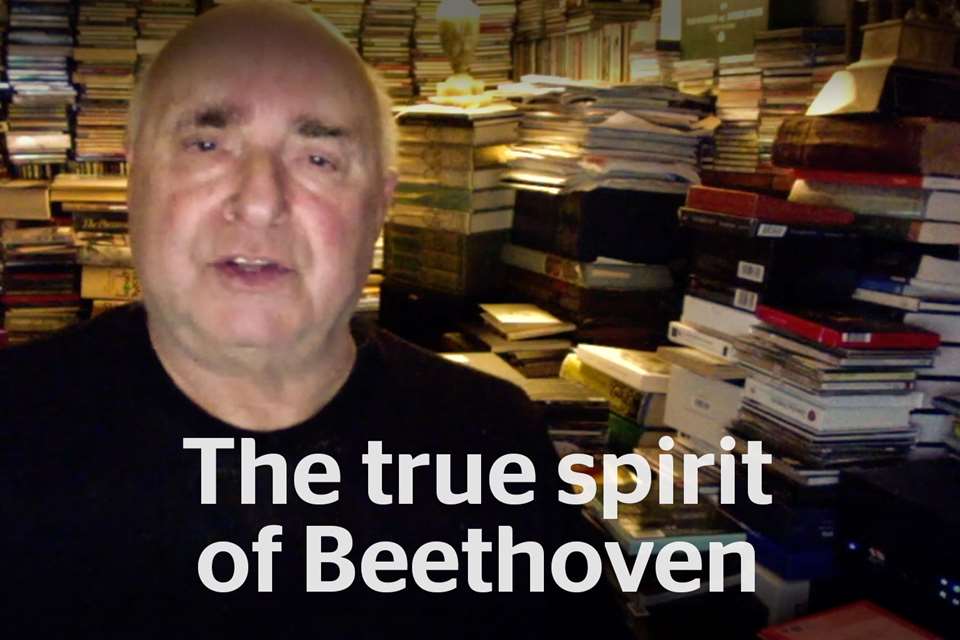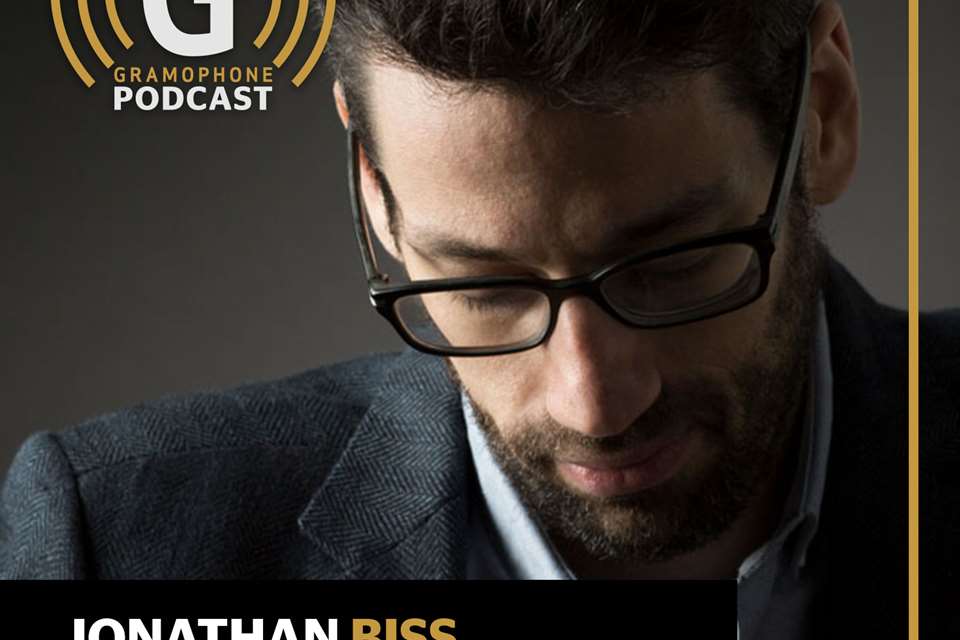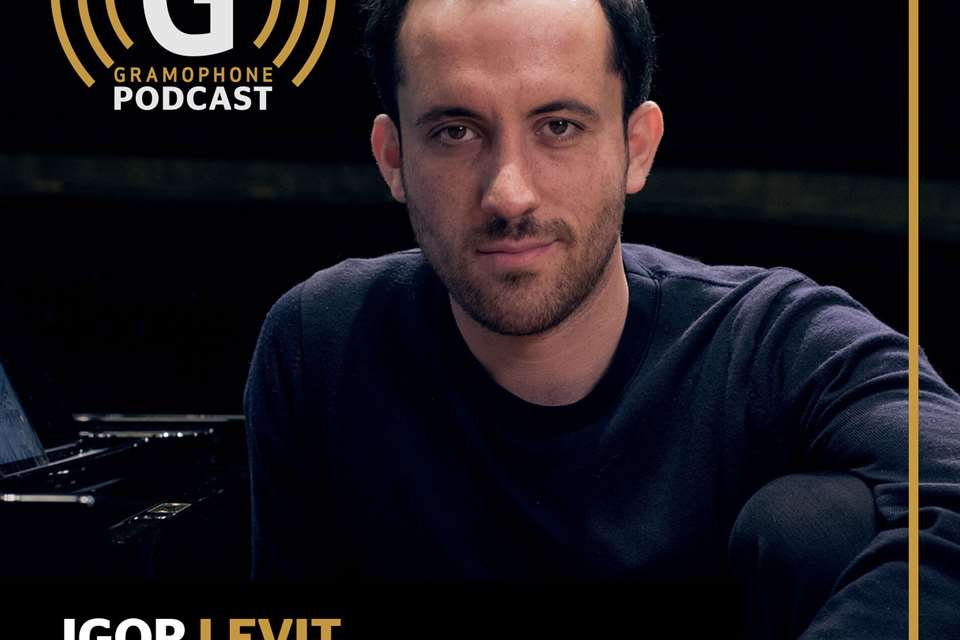Beethoven the Modern
François-Xavier Roth
Thursday, January 9, 2020
Beethoven’s legendary Academy events presented new music for an audience that was hungry for novelty. Here, conductor François-Xavier Roth explains how he has been inspired by the spirit of these concerts – and of the great composer himself – in programming his concert at London’s Southbank Centre on February 21 with pianist Pierre-Laurent Aimard and the Gürzenich-Orchester Köln
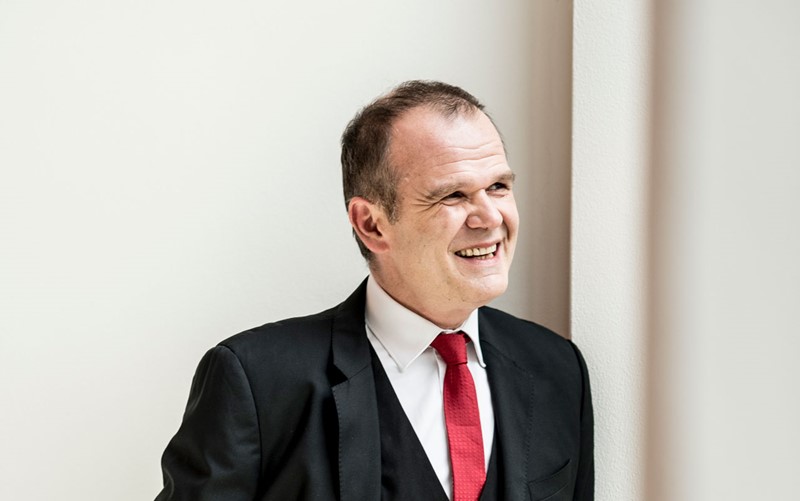
(François-Xavier Roth – photo: Holger Talinski)
Beethoven has had a great significance for me throughout my life, for many reasons. In my country, France, he has always been an important figure. He was perhaps the first composer in the history of music to imagine a better way of being and to have a precise idea of how music can help people live together. This Utopian ideal is strong in French culture because of the French Revolution, which, as we know, influenced Beethoven heavily.
In recent years, as General Music Director of the Gürzenich-Orchester Köln, I have had the wonderful opportunity to live and play music in Beethoven’s own home region (he was born in Bonn). It’s a very special area and I feel even closer to Beethoven for working so intensively here and having had the privilege of visiting his house several times. He is very close to my heart.
Beethoven’s humanism is an aspect of both his personality and his attitude to music. Through Beethoven, music is no longer an art that merely colours life – it can actually change the human being. This concept is extremely important in today’s world and I always keep in mind the path that Beethoven shows us. Through the arts, we can have greater expectations for living together and what we can become individually.
It was important to us to celebrate Beethoven not as if he were in a museum, but to show the audience how revolutionary he really was
François-Xavier RothBeethoven helped to invent the very concept of the concert. At the time they were called ‘academies’ and the main principle was that they presented only modern music. When you look at the programmes of these events, it’s astonishing to see the creativity with which Beethoven put together so many different forms of music: chamber, symphonic and solo, as well as opera arias.
In planning our concerts to mark Beethoven’s 250th anniversary, our central idea is of Beethoven the modern, who was interested in pushing the limits of musical language as far as possible and provoking a deep response in his audience. It was important to us to celebrate Beethoven not as if he were in a museum, but to show the audience how revolutionary he really was.
This led us to combine his music with that of composers of our time. I asked Francesco Filidei and Isabel Mundry to write something, and we’ll also be playing works by Bernd Alois Zimmermann, who was a very important figure in Cologne, and Helmut Lachenmann. As with Beethoven’s academies, the role of his own instrument – the piano, played by Pierre-Laurent Aimard – will be central as we travel through his music and that of the other composers.
We are also experimenting with a different kind of concert presentation. I have asked choreographer Jörg Weinöhl to work with the musicians on how they will move and act on stage, and Isabel Mundry has composed transitions that take us from one piece to the next. It’s important that there’s a sense of drama, of being a show. New formats can help audiences go into a concert hall with a fresh attitude.
This is one of today’s most exciting challenges: to reinvent the act of coming into a concert hall and being part of a musical adventure. In doing this we must trust music as a supreme art form that can project something about us that we don’t necessarily even know ourselves. Doing this is an extremely optimistic gesture, which asks questions about how we live together on this earth and what we want to experience. Do we really want to repeat and repeat something we’ve all known for years in exactly the same way? If we’re going to listen to Beethoven symphonies our whole lives until we die, we need new contexts and perspectives.
In Beethoven’s time, when it came to music, people were only attracted to novelties – they were not interested in anything old. Today it’s almost the opposite: people are afraid of innovation, and when they go to a concert, they want to feel safe with music they already know. I am glad to say that this tendency is changing, though. When I programme concerts in Cologne, and other places, I try to allow space for the curiosity of the audience. When you trust that they can be intelligent and open to new things, it works. This is a long-term project, and I’m very lucky that in Cologne I have been able to build this curiosity with my audience. People who come to our concerts usually trust us and know that they’re going to have a good experience, even if they don’t know all the notes that will be performed in the concert beforehand.
When one tries to reinvent something, people can be a little lazy, saying, ‘But things were better before,’ or ‘I don’t want to hear that because I know the rules and I feel confident with them.’ When you change the rules, you put yourself in danger, but with Gürzenich-Orchester Köln and all the orchestras I work with, both the players and our audiences want us to dare to do that. It’s a question of life. We don’t want symphony orchestras to be considered as old institutions. Musicians want to do their jobs better today than they did yesterday and to play the symphony we’ve played 500 times in another way – to rediscover the old work. We want to play with new eyes and new attitudes, otherwise it is boring.
Beethoven understood this better than anyone. Throughout his life he dared to put himself in danger, driving forward with his ideas, breaking rules, reinventing music, forcing audiences to think and hear differently. That’s why, in marking Beethoven’s 250th anniversary, we have not put together a conventional programme. It’s adventurous and experimental, and I’m very proud and happy about that, because I want to celebrate Beethoven as a modern composer, and what he did for music history and for humanity.
François-Xavier Roth, Pierre-Laurent Aimard and the Gürzenich-Orchester Köln will be performing works by Beethoven juxtaposed with contemporary music at London's Southbank Centre on February 21, 2020. For tickets and information, please visit: southbankcentre.co.uk




